INTERNACIONAL
Obama officials used dossier to probe, brief Trump despite knowing it was unverified ‘internet rumor’
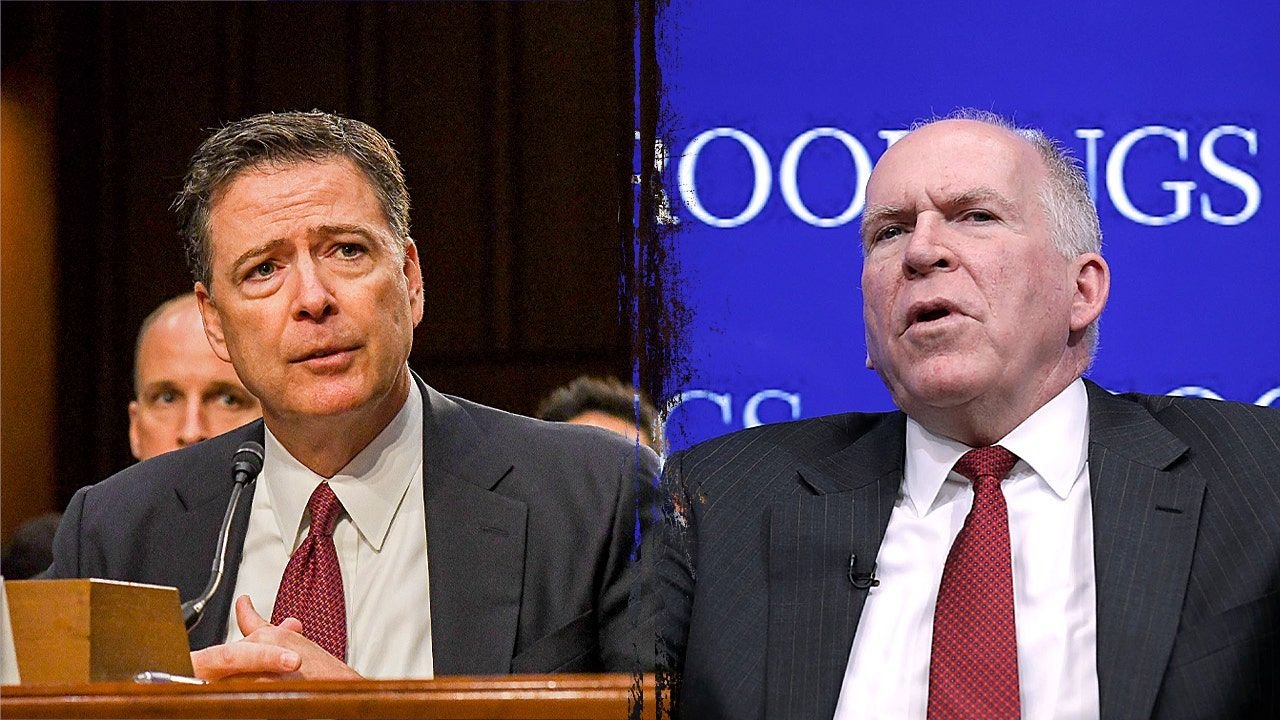
NEWYou can now listen to Fox News articles!
The discredited document at the center of the criminal investigations into former CIA Director John Brennan and former FBI Director James Comey was used to open the original Trump–Russia probe in 2016 and used to brief then-President-elect Donald Trump, despite top Obama-era intelligence officials knowing it was filled with unverified «internet rumor.»
The «Steele dossier,» as it’s called, was authored by ex-British intelligence officer Christopher Steele. It was funded by Hillary Clinton’s presidential campaign and the Democratic National Committee (DNC) through the law firm Perkins Coie.
OBAMA OFFICIALS HAD NO ‘EMPIRICAL EVIDENCE’ OF TRUMP-RUSSIA COLLUSION: HOUSE INTEL TRANSCRIPTS
After Trump’s 2016 victory and during the presidential transition period, Comey briefed Trump on the now-infamous anti-Trump dossier, containing salacious allegations of purported coordination between Trump and the Russian government. Brennan was present for that briefing, which took place at Trump Tower in New York City in January 2017.
However, Brennan and Comey knew of intelligence suggesting Clinton, during the campaign, was stirring up a plan to tie Trump to Russia, documents claim. It is unclear whether the intelligence community, at the time, knew that the dossier was paid for by Clinton and the DNC.
Former FBI Director James Comey, left, and former CIA Director John Brennan. (Mark Reinstein/Corbis via Getty Images | Chip Somodevilla/Getty Images)
CIA Director John Ratcliffe, when he served as director of national intelligence under the first Trump administration, declassified Brennan’s handwritten notes memorializing that meeting, which were exclusively obtained by Fox News Digital in October 2020.
On July 28, 2016, Brennan briefed then-President Barack Obama on a plan from one of Clinton’s campaign foreign policy advisors «to vilify Donald Trump by stirring up a scandal claiming interference by the Russian security service,» the notes said.
Comey, then-Vice President Joe Biden, former Attorney General Loretta Lynch and former Director of National Intelligence James Clapper were at the Brennan–Obama briefing.
«We’re getting additional insight into Russian activities from (REDACTED),» read Brennan’s handwritten notes, exclusively obtained by Fox News Digital in October 2020. «CITE (summarizing) alleged approved by Hillary Clinton a proposal from one of her foreign policy advisers to vilify Donald Trump by stirring up a scandal claiming interference by the Russian security service.»
After that briefing, the CIA properly forwarded that information through a Counterintelligence Operational Lead (CIOL) to Comey and then-Deputy Assistant Director of Counterintelligence Peter Strzok, with the subject line: «Crossfire Hurricane.»
Fox News Digital exclusively obtained and reported on the CIOL in October 2020, which stated, «The following information is provided for the exclusive use of your bureau for background investigative action or lead purposes as appropriate.»
FBI LAUNCHES CRIMINAL INVESTIGATIONS OF JOHN BRENNAN, JAMES COMEY: DOJ SOURCES
«Per FBI verbal request, CIA provides the below examples of information the CROSSFIRE HURRICANE fusion cell has gleaned to date,» the memo continued. «An exchange (REDACTED) discussing US presidential candidate Hillary Clinton’s approval of a plan concerning US presidential candidate Donald Trump and Russian hackers hampering US elections as a means of distracting the public from her use of a private email server.»
The FBI did not open an investigation into the matter, and instead, continued with its counterintelligence investigation into whether candidate Trump and members of his campaign were colluding or coordinating with Russia to influence the 2016 campaign. That investigation, which was opened July 31, 2016, was referred to inside the bureau as «Crossfire Hurricane.»
Brennan and Comey are now under criminal investigation for potential wrongdoing related to the Trump-Russia probe, including allegedly making false statements to Congress, Justice Department sources told Fox News Digital.
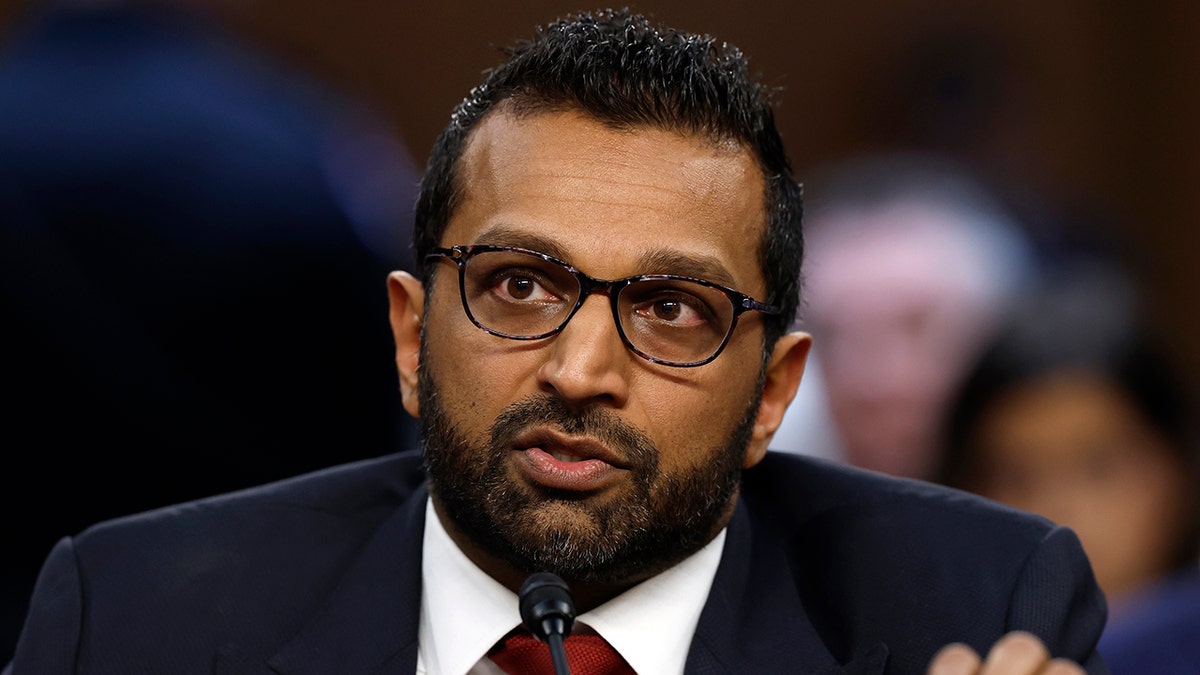
CIA Director John Ratcliffe referred evidence of alleged wrongdoing by former CIA Director John Brennan to FBI Director Kash Patel, pictured here, for potential prosecution, DOJ sources told Fox News Digital. (Anna Moneymaker/Getty Images)
Ratcliffe referred evidence of alleged wrongdoing by Brennan to FBI Director Kash Patel for potential prosecution, DOJ sources told Fox News Digital.
The sources said that the referral was received and told Fox News Digital that a criminal investigation into Brennan was opened and is underway. DOJ sources declined to provide further details. It is unclear, at this point, if the investigation spans beyond his alleged false statements to Congress.
As for Comey, DOJ sources told Fox News Digital that an investigation into the former director is underway but could not share details of what specifically is being probed.
The full scope of the criminal investigations into Brennan and Comey is unclear, but two sources described the FBI’s view of the duo’s interactions as a «conspiracy,» which could open up a wide range of potential prosecutorial options.
The Brennan investigation comes after Ratcliffe recently declassified a «lessons learned» review of the creation of the 2017 Intelligence Community Assessment (ICA). The 2017 ICA alleged Russia sought to influence the 2016 presidential election to help then-candidate Trump. However, the review found that the process of the ICA’s creation was rushed with «procedural anomalies,» and that officials had diverted from intelligence standards.
It also determined that the «decision by agency heads to include the Steele Dossier in the ICA ran counter to fundamental tradecraft principles and ultimately undermined the credibility of a key judgment.»
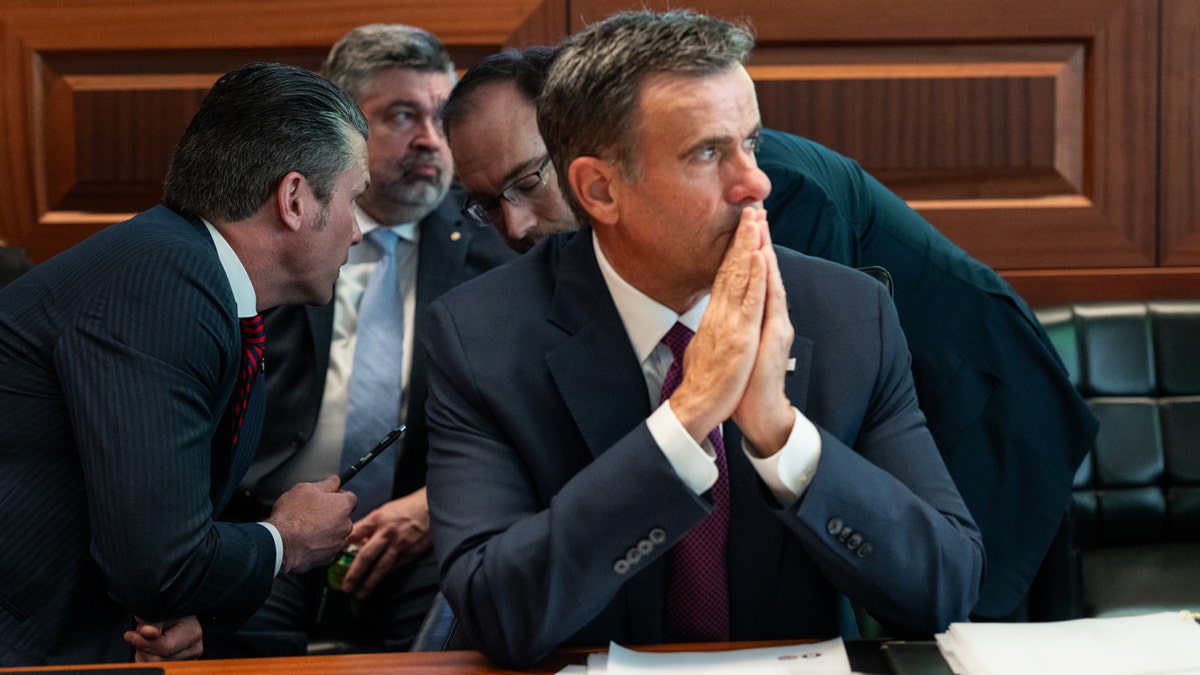
CIA Director John Ratcliffe sits with his hands folded in the Situation Room on June 21, 2025. (The White House via X)
The review marks the first time career CIA officials have acknowledged politicization of the process by which the ICA was written, particularly by Obama-era political appointees. Records declassified as part of that review further revealed that Brennan did, in fact, push for the dossier to be included in the 2017 ICA.
Brennan testified to the House Judiciary Committee in May 2023, however, that he did not believe the dossier should be included in that intelligence product.
EX-OBAMA INTEL BOSS WANTED ANTI-TRUMP DOSSIER INCLUDED IN ‘ATYPICAL’ 2016 ASSESSMENT DESPITE PUSHBACK
Ratcliffe was not surprised by the review’s findings, a source familiar told Fox News Digital, given the director’s long history of criticizing Brennan’s politicization of intelligence. However, Ratcliffe was compelled to refer aspects of Brennan’s involvement to the FBI for review of possible criminality, the source said.
The source was unable to share the sensitive details of Ratcliffe’s criminal referral to the FBI with Fox News Digital but said that Brennan «violated the public’s trust and should be held accountable for it.»
The false statements portion of the probe stems from a newly declassified email sent to Brennan by the former deputy CIA director in December 2016. That message said that including the dossier in the ICA in any capacity jeopardized «the credibility of the entire paper.»
«Despite these objections, Brennan showed a preference for narrative consistency over analytical soundness,» the new CIA review states. «When confronted with specific flaws in the Dossier by the two mission center leaders – one with extensive operational experience and the other with a strong analytic background – he appeared more swayed by the Dossier’s general conformity with existing theories than by legitimate tradecraft concerns.»
The review added, «Brennan ultimately formalized his position in writing, stating that ‘my bottomline is that I believe that the information warrants inclusion in the report.’»
However, Brennan testified the opposite in front of Congress in May 2023.
«The CIA was very much opposed to having any reference or inclusion of the Steele dossier in the Intelligence Community Assessment,» Brennan testified before the House committee, according to the transcript of his deposition reviewed by Fox News Digital. «And so they sent over a copy of the dossier to say that this was going to be separate from the rest of that assessment.»
FLASHBACK: NEWLY DECLASSIFIED INTEL DOCUMENT NOTED STEELE DOSSIER CLAIMS HAD ‘LIMITED CORROBORATION’
CIA officials at the time of its creation pushed back against the FBI, which sought to include the dossier, arguing that the dossier should not be included in the assessment, and casting it as simply «internet rumor.»
Ultimately, Steele’s reporting was not included in the body of the final ICA prepared for then-President Obama, but instead detailed in this footnote, «largely at the insistence of FBI’s senior leadership,» according to a review by the Justice Department inspector general and later the Senate Intelligence Committee.
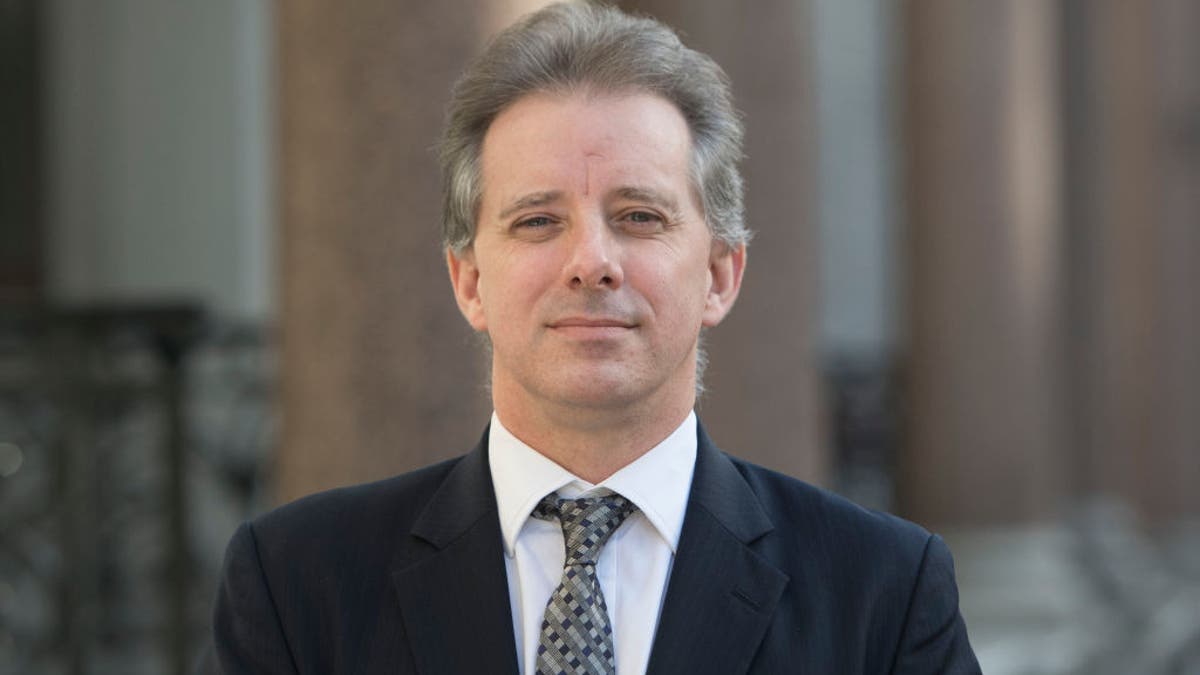
Christopher Steele is a former MI6 agent who set up Orbis Business Intelligence and compiled a dossier on Donald Trump. (Victoria Jones/PA Images via Getty Images )
However, back in June 2020, Ratcliffe, while serving as director of national intelligence, declassified a footnote from the 2017 ICA, which revealed that the reporting of Trump dossier author Steele had only «limited corroboration» regarding whether then-President-elect Trump «knowingly worked with Russian officials to bolster his chances of beating» Clinton and other claims.
FLASHBACK: DNI DECLASSIFIES BRENNAN NOTES, CIA MEMO ON HILLARY CLINTON ‘STIRRING UP’ SCANDAL BETWEEN TRUMP, RUSSIA
The footnote, also known as «Annex A» of the 2017 ICA, exclusively obtained by Fox News Digital in June 2020, spanned less than two pages and detailed reporting by Steele. The footnote made clear the internal concerns officials had over that document.
«An FBI source (Steele) using both identified and unidentified subsources, volunteered highly politically sensitive information from the summer to the fall of 2016 on Russian influence efforts aimed at the US presidential election,» the annex read. «We have only limited corroboration of the source’s reporting in this case and did not use it to reach the analytic conclusions of the CIA/FBI/NSA assessment.»
«The source collected this information on behalf of private clients and was not compensated for it by the FBI,» it continued. However, the annex notes that Steele’s reporting was «not developed by the layered subsource network.»
«The FBI source caveated that, although similar to previously provided reporting in terms of content, the source was unable to vouch for the additional information’s sourcing and accuracy,» the annex states. «Hence this information is not included in this product.»
FBI IGNORED ‘CLEAR WARNING SIGN’ OF CLINTON-LED EFFORT TO ‘MANIPULATE’ BUREAU FOR ‘POLITICAL PURPOSES’
Justice Department Inspector General Michael Horowitz also reviewed the inclusion of Steele’s reporting in the ICA during his review of alleged misconduct related to the Foreign Intelligence Surveillance Act (FISA).
Horowitz said that the unverified dossier helped serve as the basis for controversial FISA warrants obtained against former Trump campaign aide Carter Page.

One-time advisor to then-President-elect Donald Trump Carter Page addresses the audience during a presentation in Moscow on Dec. 12, 2016. (Sergei Karpukhin/Reuters)
His report, released in late 2019, found that there were «significant inaccuracies and omissions» in FISA warrants for Page. Those warrants relied heavily on Steele’s reporting, despite the FBI not having had specific information corroborating allegations against Page that were included in Steele’s reporting.
Fox News Digital has learned that the Foreign Intelligence Surveillance Court ordered that information surrounding FISAs for Page will be reviewed and used by the FBI and Justice Department as part of their investigations.
The FBI and CIA declined to comment.
Neither Brennan nor Comey immediately responded to Fox News Digital’s request for comment.
Former special counsel Robert Mueller was appointed to take over the FBI’s original «Crossfire Hurricane» investigation. After nearly two years, Mueller’s investigation, which concluded in March 2019, yielded no evidence of criminal conspiracy or coordination between the Trump campaign and Russian officials during the 2016 presidential election.
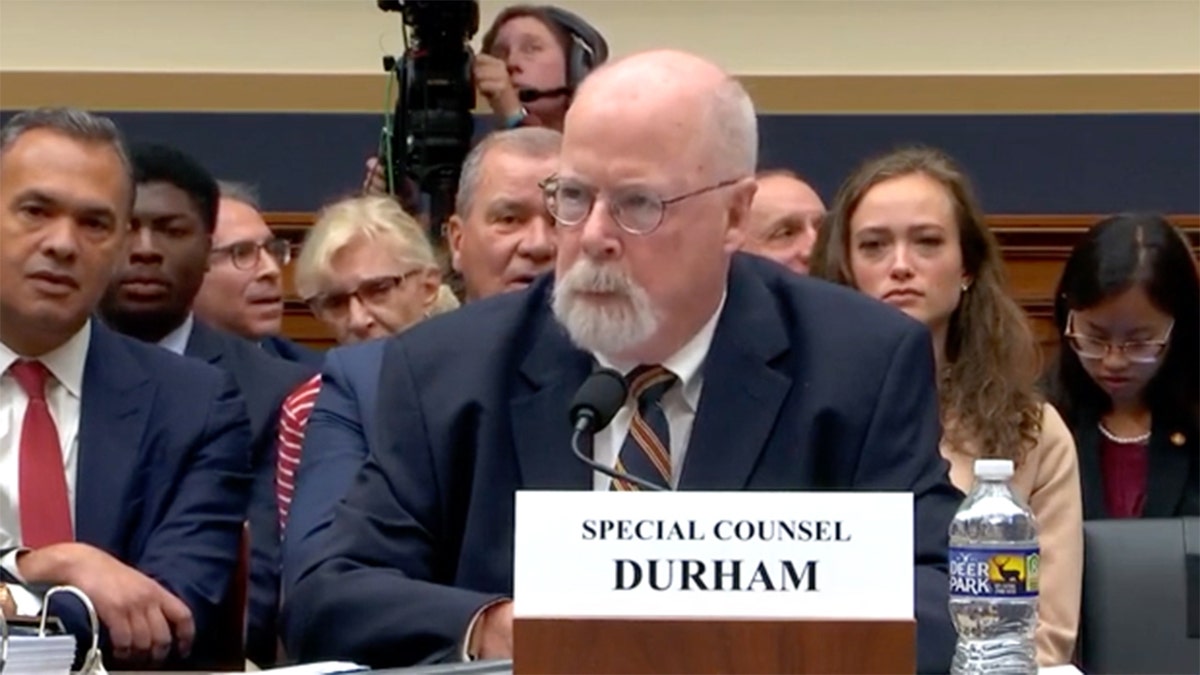
John Durham was appointed as special counsel to investigate the origins of the «Crossfire Hurricane» probe. (Screenshot/HouseJudiciaryCommittee)
WHITE HOUSE WANTS OBAMA INTEL OFFICIALS ‘HELD ACCOUNTABLE’ FOR ROLE PEDDLING 2016 RUSSIA HOAX
Shortly after, John Durham was appointed as special counsel to investigate the origins of the «Crossfire Hurricane» probe.
Durham found that the FBI «failed to act» on a «clear warning sign» that the bureau was the «target» of a Clinton-led effort to «manipulate or influence the law enforcement process for political purposes» ahead of the 2016 presidential election.
«The aforementioned facts reflect a rather startling and inexplicable failure to adequately consider and incorporate the Clinton Plan intelligence into the FBI’s investigative decision-making in the Crossfire Hurricane investigation,» Durham’s report states.
CLICK HERE TO GET THE FOX NEWS APP
«The Office showed portions of the Clinton Plan intelligence to a number of individuals who were actively involved in the Crossfire Hurricane investigation. Most advised they had never seen the intelligence before, and some expressed surprise and dismay upon learning of it,» Durham’s report states. «For example, the original Supervisory Special Agent on the Crossfire Hurricane investigation, Supervisory Special Agent-1, reviewed the intelligence during one of his interviews with the Office.»
Durham added, «After reading it, Supervisory Special Agent-I became visibly upset and emotional, left the interview room with his counsel, and subsequently returned to state emphatically that he had never been apprised ofthe Clinton Plan intelligence and had never seen the aforementioned Referral Memo.»
INTERNACIONAL
Biden accuses Trump of erasing history and squandering US leadership role on global stage: ‘Dark days’
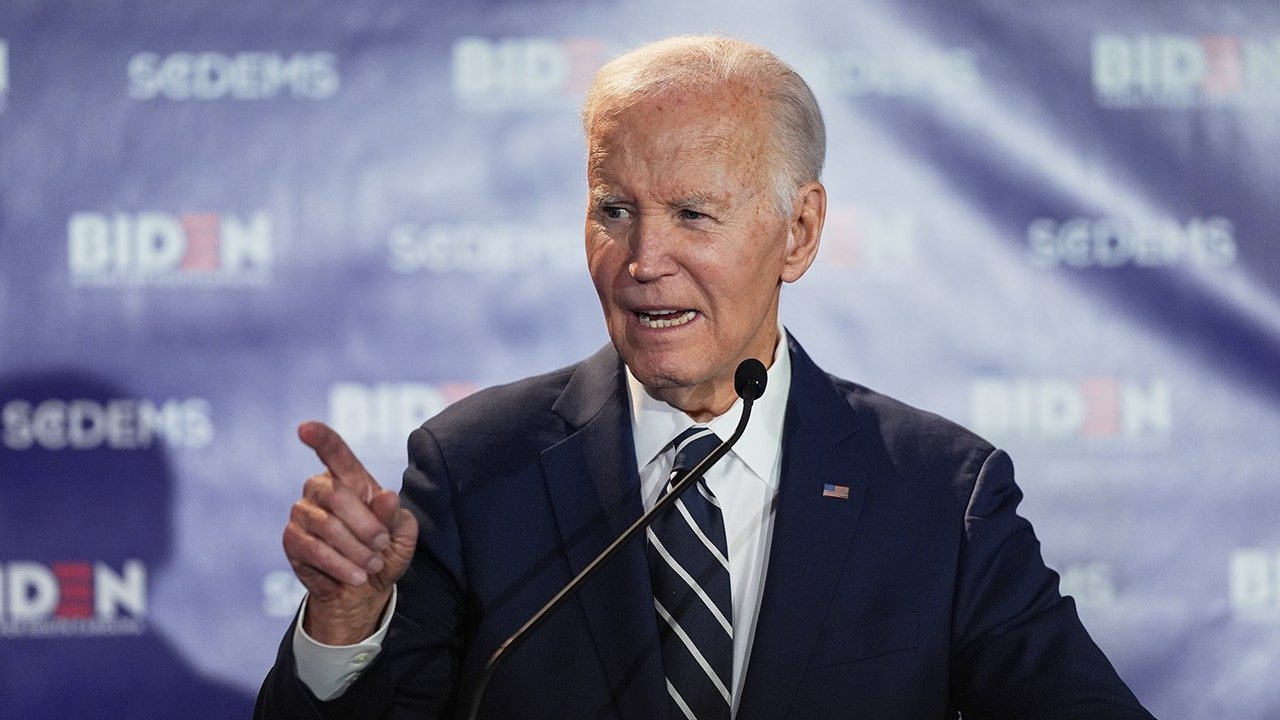
NEWYou can now listen to Fox News articles!
Former President Joe Biden on Friday accused President Donald Trump of attempting to «erase the truth» and squandering the United States’ role as the leader of the world.
«It’s not just my record Trump’s trying to erase,» Biden told South Carolina Democrats, while talking about the president’s efforts to get rid of the Affordable Care Act.
«He’s trying to erase fairness, equity, history, the truth,» he continued, citing incidents in which information about slavery has been removed or altered from museums and national parks since Trump took office.
«Great nations don’t bury the truth, Biden balked. «They face it. This is a great nation.»
Former President Joe Biden on Friday accused President Donald Trump of attempting to erase the truth and squandering the United States’ role as the leader of the world. (AP Photo/Matt Kelley)
Last summer, Trump wrote that «The Smithsonian is OUT OF CONTROL, where everything discussed is how horrible our Country is, how bad Slavery was, and how unaccomplished the downtrodden have been — Nothing about Success, nothing about Brightness, nothing about the Future.»
He also ordered a review of the Smithsonian to make sure its exhibits align with celebrating «American exceptionalism.»
Biden — the guest of honor at Friday’s «thank you» event organized by state Dems who helped resuscitate his presidential campaign six years ago — claimed the U.S. is currently living in «dark days.»
LIZ PEEK: AMERICA EXPECTED ONE THING FROM TRUMP’S STATE OF THE UNION. IT GOT ANOTHER
«Our future is literally on the line,» he said. «We have to be unapologetic about fighting for our country.»
Biden also issued a warning about the upcoming midterms, claiming that Trump is «trying to steal the election because he knows he can’t win your vote, so he’s going to do everything he can to prevent you from wanting to vote. … Mark my words. I hope I’m wrong.»
He said the more that voters see of Trump, the «less they like him.»
SPEECHWRITERS SPLIT AFTER TRUMP’S RECORD-BREAKING SOTU: ‘LIVING IN HIS OWN REALITY’ VS. ‘RESOUNDING SPEECH’
«They don’t like that he’s raising health care costs, fighting against the Affordable Care Act, and they sure as hell don’t like what they saw in Minnesota: Mass ICE agents pulling people out of their homes and literally murdering two people in the street,» he swiped.

President Trump delivered his State of the Union speech on Tuesday. (Kenny Holston-Pool/Getty Images)
Biden, 83, added, «They don’t believe the president should be king or dictator.»
He said because of this, Democrats are winning in places «you’d never expect.»
BIDEN TO HEADLINE NATIONAL BAR ASSN GALA DESPITE SON HUNTER’S DISBARMENT, ALONG WITH CROCKETT, TISH JAMES
«So, we have reason to be hopeful, because time and again throughout history, in the moments of great crisis, Americans have summoned the better angels of our nature and brought our country back from the abyss.»
Biden also predicted that Democrats would take back both the Senate and House of Representatives in November.
Biden boasted that he knew more heads of state than any other president in history, adding, «Americans knew they had a president who believed in, respected and followed the Constitution.»
Citing a Pew Research Poll that he said showed a «dramatic drop in our reputation around the world,» he claimed, «We’re no longer the way we were.»
He added if the U.S. doesn’t lead the world, it could be Russia or China that does.

Ukrainian President Volodymyr Zelenskyy meets with President Donald Trump, Jan. 23, in Davos, Switzerland. (Ukranian Presidency/Handout/Anadolu via Getty Images)
Biden also blasted Trump’s State of the Union speech on Tuesday for what he left out.
«The guy talks for almost two hours but never mentioned the anniversary of Putin invading Ukraine,» Biden admonished. «Never once.»
He also noted that the president didn’t mention Renee Good or Alex Pretti, the Americans who were killed by ICE agents earlier this year in Minneapolis, «or offer even a word of solace to their families.»
CLICK HERE TO DOWNLOAD THE FOX NEWS APP
«He doesn’t offer a word of support, even recognition to Epstein’s victims sitting in front of him during the entire time,» Biden said, mentioning the Jeffrey Epstein survivors who were in the audience for the speech. «He never acknowledged them.»
The White House did not immediately respond to Fox News Digital’s request for comment.
joe biden,politics,donald trump,south carolina,democratic party
INTERNACIONAL
Donald Trump dice que “no está contento” con las conversaciones con Irán y crecen los temores a un ataque de EE.UU.
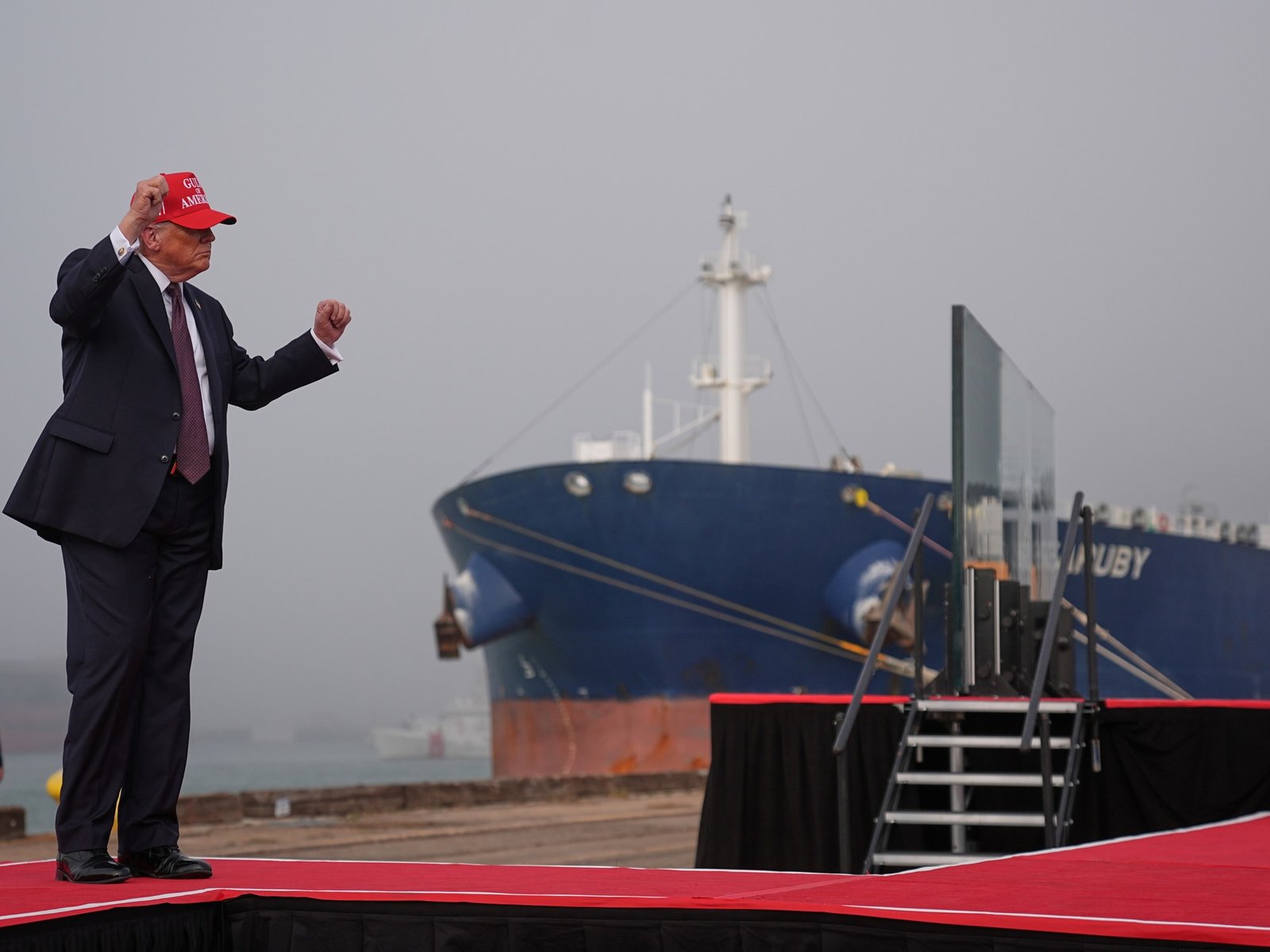
INTERNACIONAL
ICE blasts Washington mayor over directive restricting immigration enforcement

NEWYou can now listen to Fox News articles!
U.S. Immigration and Customs Enforcement (ICE) accused Everett, Washington, Mayor Cassie Franklin of escalating tensions with federal authorities after she issued a directive limiting immigration enforcement in the city.
Franklin issued a mayoral directive this week establishing citywide protocols for staff, including law enforcement, that restrict federal immigration agents from entering non-public areas of city buildings without a judicial warrant.
«We’ve heard directly from residents who are afraid to leave their houses because of the concerning immigration activity happening locally and across our country. It’s heartbreaking to see the impacts on Everett families and businesses,» Franklin said in a statement.
«With this directive, we are setting clear protocols, protecting access to services and reinforcing our commitment to serving the entire community.»
ICE blasted the directive Friday, writing on X it «escalates tension and directs city law enforcement to intervene with ICE operations at their own discretion,» thereby «putting everyone at greater risk.»
Mayor Cassie Franklin said her new citywide immigration enforcement protocols are intended to protect residents and ensure access to services, while ICE accused her of escalating tensions with federal authorities. (Google Maps)
ICE said Franklin was directing city workers to «impede ICE operations and expose the location of ICE officers and agents.»
«Working AGAINST ICE forces federal teams into the community searching for criminal illegal aliens released from local jails — INCREASING THE FEDERAL PRESENCE,» the agency said. «Working with ICE reduces the federal presence.»
«If Mayor Franklin wanted to protect the people she claims to serve, she’d empower the city police with an ICE 287g partnership — instead she serves criminal illegal aliens,» ICE added.
DHS, WHITE HOUSE MOCK CHICAGO’S LAWSUIT OVER ICE: ‘MIRACULOUSLY REDISCOVERED THE 10TH AMENDMENT’

U.S. Immigration and Customs Enforcement blasted Everett’s mayor after she issued a directive restricting federal agents from accessing non-public areas of city facilities without a warrant. (Victor J. Blue/Bloomberg via Getty Images)
During a city council meeting where she announced the policy, Franklin said «federal immigration enforcement is causing real fear for Everett residents.»
«It’s been heartbreaking to see the racial profiling that’s having an impact on Everett families and businesses,» she said. «We know there are kids staying home from school, people not going to work or people not going about their day, dining out or shopping for essentials.»
The mayor’s directive covers four main areas, including restricting federal immigration agents from accessing non-public areas of city buildings without a warrant, requiring immediate reporting of enforcement activity on city property and mandating clear signage to enforce access limits.
BLOCKING ICE COOPERATION FUELED MINNESOTA UNREST, OFFICIALS WARN AS VIRGINIA REVERSES COURSE

Everett, Wash., Mayor Cassie Franklin said her new directive is aimed at protecting residents amid heightened immigration enforcement activity. (iStock)
It also calls for an internal policy review and staff training, including the creation of an Interdepartmental Response Team and updated immigration enforcement protocols to ensure compliance with state law.
Franklin directed city staff to expand partnerships with community leaders, advocacy groups and regional governments to coordinate responses to immigration enforcement, while promoting immigrant-owned businesses and providing workplace protections and «know your rights» resources.
The mayor also reaffirmed a commitment to «constitutional policing and best practices,» stating that the police department will comply with state law barring participation in civil immigration enforcement. The directive outlines protocols for documenting interactions with federal officials, reviewing records requests and strengthening privacy safeguards and technology audits.
CLICK HERE TO DOWNLOAD THE FOX NEWS APP

Everett, Wash., Mayor Cassie Franklin issued a directive limiting federal immigration enforcement in city facilities. (iStock)
«We want everyone in the city of Everett to feel safe calling 911 when they need help and to know that Everett Police will not ask about your immigration status,» Franklin said during the council meeting. »I also expect our officers to intervene if it’s safe to do so to protect our residents when they witness federal officers using unnecessary force.»
Fox News Digital has reached out to Mayor Franklin’s office and ICE for comment.
police and law enforcement,immigration,washington,immigrant rights

 POLITICA3 días ago
POLITICA3 días agoJorge Macri prepara su discurso para abrir el año legislativo: el deseo de reelección y el espejo en Bukele

 ECONOMIA2 días ago
ECONOMIA2 días agoCrisis en la industria: otra multinacional se achica y cierra una planta en la Argentina

 CHIMENTOS1 día ago
CHIMENTOS1 día agoAlarma por la salud de Divina Gloria tras salir de Gran Hermano: “La internaron directamente en terapia intensiva”
















